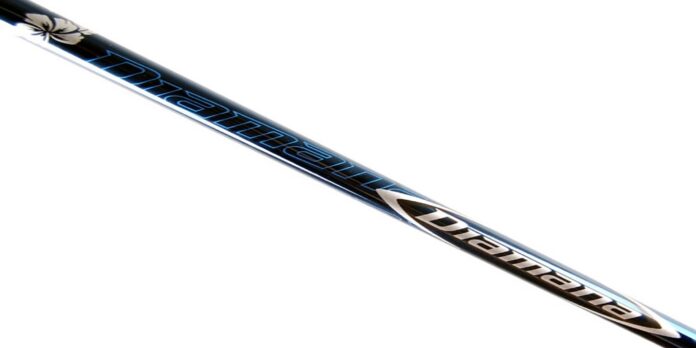A substantial proportion of golf shafts in the past were made of steel. Though some still are, pretty much all of the best golf shafts in the industry today are made from graphite or composites that include carbon fiber and metal mesh.
All you need to do is look through lists of some of the best golf shafts, especially the best shafts for drivers. Every entry on that list will be made of graphite or of some composite material.
So what’s the reason? Is graphite really a superior material? Let’s take a look at some of the reasons that graphite has taken over.
Graphite vs. Steel and the Current Primacy of Graphite
Steel is affordable and consistent, and these are two of the main reasons that steel was the dominant shaft material for so long.
However, steel shafts (as a general rule) are heavy and don’t offer a lot of flexibility. That is, not that the shafts themselves are inflexible (which is also true) but that there is only so much that manufacturers can do to create any sort of variety in shaft performance.
Graphite shafts are not like this. They offer so much more flexibility in terms of specifications that it’s possible to create graphite shafts for all sorts of club heads and all sorts of players with very different needs.
While there are heavy graphite shafts in the 100g range, graphite shafts can also be made very light, down even as low as the 30g to 40g range. This means that shaft weight can be tailored very closely to a player’s swing speed and tempo.
Another great thing about graphite shafts (and multi-material shafts) is that shaft flex can be closely tailored and adjusted. While the stiffest graphite shafts are not quite as stiff as steel shafts, they can still be made very stiff. This makes high-end, extra stiff graphite shafts suitable for players with higher swing speeds and helps to preserve the shaft’s ability to transmit feedback.
In addition, graphite shafts can also be made in very flexible shaft flex ratings that are more suitable for players with slower swing speeds. This makes them more amenable to amateur players, senior players, and others who need more flexible shaft options for their golf clubs.
Because there is so much variation in the lay and density of the carbon fibers that make up graphite, not only shaft flex can be adjusted, but also torque rating, kick point, and the consistency of the flex profile. This means that shafts of all varying flex, torque, kick point ratings and more can be manufactured. It also means that adjustments can be made to butt, mid, and tip-section stiffness ratings to produce both high and low spin shafts with different launch profiles.
In a word, graphite shafts offer precision and flexibility that steel just doesn’t offer. It doesn’t make steel shafts bad. It just makes graphite shafts more customizable, and therefore most of the best shafts on the market are graphite.
It’s worth noting that when graphite shafts were first introduced, they weren’t universally appreciated. Some critics were skeptical of the performance they could offer and were quick to key in on inconsistencies in manufacturing.
That being said, advances in technology have made leaps and bounds and now the market is dominated by highly specialized graphite shafts that are suitable for golfers with all different sorts of abilities, proficiencies, and special considerations.
So flexibility, strength, weight, and tight tolerances – these are some of the reasons that pretty much all of the best golf shafts in the industry are made with graphite or composite materials.
Where Can You Find the Best Golf Shafts in the Industry at Great Prices?
Whether you’re looking for a regular flex or a stiff shaft for your drivers and irons, or need a shaft that offers a slightly higher launch profile to send the golf ball farther, Dallas Golf Company has you covered, either online at DallasGolf.com or in their store in Dallas, Texas.
They carry all the major brands and the best golf shafts are well-represented on their website – True Temper, Aldila, Fujikura, Mitsubishi, and many others. Visit their website for more information, use their online shaft fitting tool, or contact them at 800-955-9550 for information.


